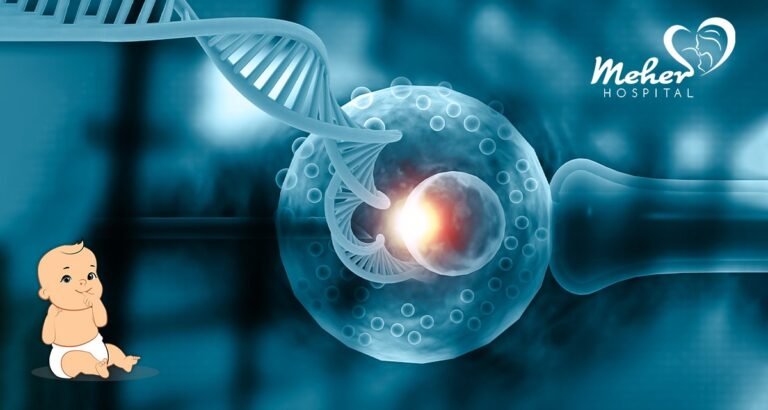The IVF technology has attained a new level, which will give hope and increased success rates to couples who have fertility challenges. From the initial step of genetic screening to the current AI-enhanced embryo selection, the newest technologies are ensuring the process becomes much more accurate, efficient, and customised. The latest approaches have been directed at enhancing implantation, minimising risks, and improving the well-being of embryos.
The latest IVF techniques, such as time-lapse imaging, non-invasive testing, and better cryopreservation techniques, have made the procedure more accessible and effective than ever before. These inventions are not merely scientific advancements, but life-changing because now the dream of having a child is becoming beautiful and a possibility for many families.
What are the New advances in IVF technology in 2026?
Here are some of the latest advances in IVF technology in 2026 are given below. Have a look at them one by one.
1. AI-Powered Embryo Selection
Among the most advanced methods of IVF in 2026, there is an artificial intelligence analysis of embryos with an astonishing level of accuracy. The doctors can use AI to choose the healthiest embryos to be implanted, which increases the success rates and minimizes the risk of multiple pregnancies. This technology will guarantee smarter and information-based fertility choices to aspiring parents.
2. Improvement in monitoring
Embryos are watched continuously over time through time-lapse imaging without disturbance. The growth and development of these embryos are recorded in close time with the help of this technology, assisting the embryologists to select the most viable ones. This is one of the emerging IVF therapies, which increases the precision, reduces the risk, and improves the success rate of the IVF cycles.
3. Innovations of Genetic Screening and Testing
Genetic screening has improved in the Latest IVF techniques, which give chances to detect chromosomal abnormalities in early stages before implantation. This will help to minimise the risks of miscarriage and hereditary diseases since only healthy embryos will be transferred genetically. It will be a big step toward healthier, more individualised fertility treatment for couples who want to have healthy pregnancies.
4. Non-Invasive Embryo Testing
The old method of testing involved using embryo biopsies, but the new IVF treatments involve non-invasive techniques that examine culture fluid instead. This method prevents possible damage to embryos, makes it more comfortable, and preserves the integrity of embryos at the same time, allowing for the obtaining of valuable genetic data. It is an upheaval in fertility testing and embryo screening.
5. State-of-the-Art Cryopreservation
Advanced techniques of cryopreservation or freezing have changed the success rates of IVF procedures. Eggs and embryos can now be preserved for a longer time, without destruction, in modern vitrification techniques. The innovations will enable patients to create their pregnancies on a flexible basis, which makes the new IVF treatments more convenient, effective, and emotionally supportive to the potential parents.
6. Individual Hormonal Stimulation Programmes
By 2026, IVF will be more patient-focused and have tailored hormonal interventions. AI data and genetic information can now be used by doctors to customise medication doses to individual reactions. Such individualised procedures improve the quality of eggs, minimise side effects, and help to streamline the fertility experience of all patients and making it more comfortable.
7. Wearable Health Technology Integration
Wearables are now becoming an important part of IVF levels. They monitor crucial health indicators such as body temperature, heart rate, and ovulation, and assist physicians to act on the fly. This is a technological method that simplifies the process of fertility tracking and introduces a higher level of accuracy to the management of reproductive health.
8. Fertility Restoration and Stem Cell Research
Stem cell research is one of the breakthroughs in New IVF treatment, and it is offering new possibilities to people with low fertility. There is also the possibility that scientists can develop the use of healthy eggs and sperm using stem cells, which gives hope to people who had no choice before. This invention can revolutionise the field of reproductive medicine.
Also Read: IVF Success Rates: What You Need to Know Before Starting
Sum up!
By 2026, the latest IVF techniques will revolutionise fertility care with smarter, safer, and more personalised treatments. The selection of embryos by means of AI, the non-invasive tests, and the development of improved cryopreservation, all these novelties give new hope to the couples who want to become parents. Such new IVF treatment not only increase the success rates but also make the process more comfortable and emotionally supportive. With the ever-evolving technology, IVF is becoming more accessible and efficient, and turning medical miracles into reality. Innovation is the future of fertility, science, compassion, and technology will work together to give more families more lives. If you want to know more about it, then you can get in touch with the Meher Hospital. They will give you more clarity regarding the procedure and advanced technologies that are in use.

